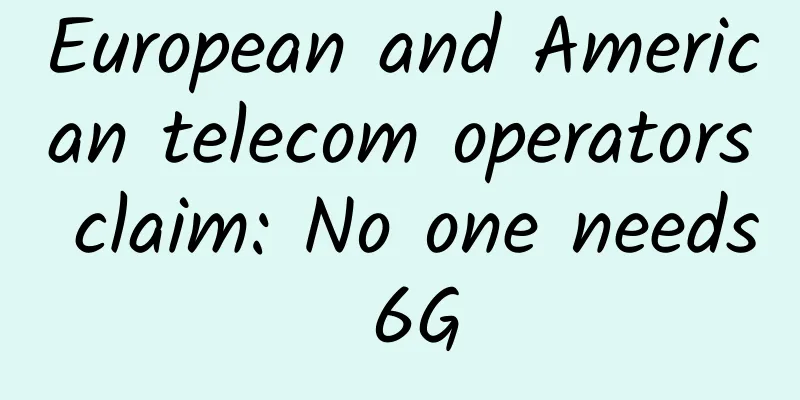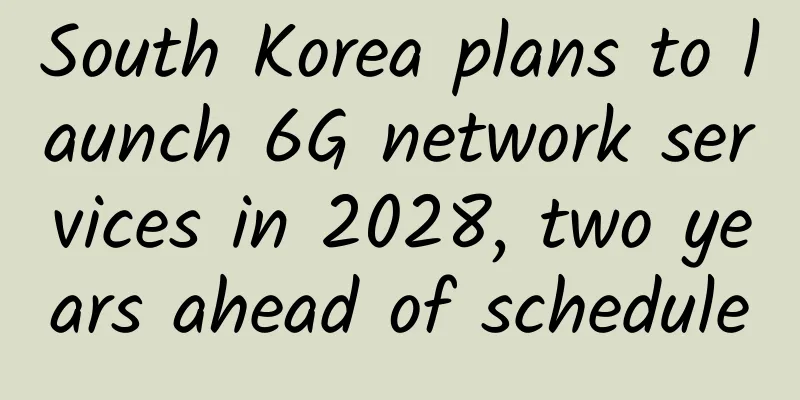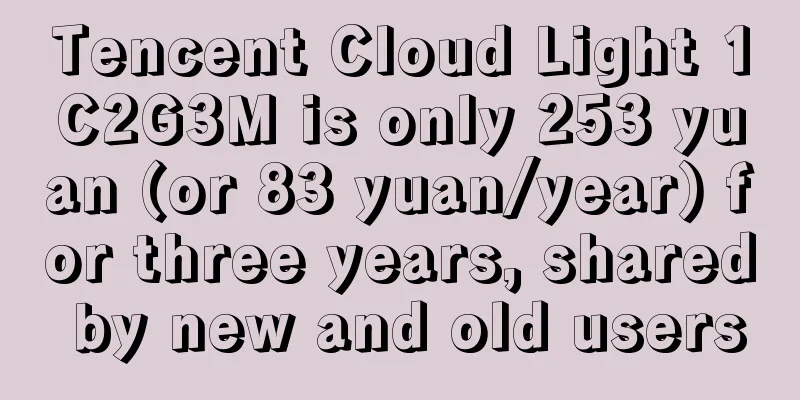European and American telecom operators claim: No one needs 6G

|
"No one needs 6G. The industry should make 6G a 'no-G' (meaning 'there should be no 6G after 5G')." This is the view expressed by Santiago Tenorio, network strategy director of Vodafone Group, in an interview recently. Neil McRae, chief architect of British Telecom Group, said in 2017 and 2021: "I hope 5G will be the best and last generation of mobile communications ever. I hope we don't need 6G." As for the reasons behind this, some analysts believe that the trillions of dollars invested by operators in various generations of mobile communication systems over the past few decades have enriched equipment manufacturers, but European and American telecom operators themselves have not achieved a revival, resulting in increasing financial pressure. Therefore, European and American telecom operators are extremely disgusted with the currently hyped 6G, which will have to invest heavily in building new networks in a few years, and are also disgusted with the too-fast generational replacement of mobile communications (basically once every ten years). As the most obvious argument, the stock prices of European and American telecom operators have generally been on a downward trend since 2000 (the heyday of the operators), resulting in a "plunge" from 2000 to the present. Deutsche Telekom has fallen from 86 euros per share to 18 euros per share, AT&T of the United States has fallen from 57.69 US dollars per share to 23.94 US dollars per share, Telefonica has fallen by 51.8%, Telecom Italia has fallen by 47.89%, Vodafone Group has fallen by 30.11%, and France Telecom has fallen by 24.94%. Analysts believe that the huge loss of operator value is due to the industry's frequent over-promises on the capabilities of each generation of mobile communication systems. Even the most successful 4G did not promote the growth of sales of European and American operators. 5G is another belated wake-up call for Europe and the United States - it began with the industry's enthusiastic promotion of new revenue-generating service opportunities for operators, but so far few have been realized - Europe and the United States' 5G is basically 4G+ (open signal testing found that AT&T's low-frequency 5G is similar to 4G in speed and latency). Some analysts commented that, like previous generations, 5G has not prevented the "rot" of European and American telecom operators - for example, Vodafone's stock price has fallen 40% in the past four years, and investments in 5G and transmission networks have put additional pressure on the profit margins of European and American operators, but revenues have remained flat and debts are high. In response, European and American operators are laying off employees, divesting infrastructure departments, sharing 5G networks, and asking communications regulators to allow them to merge and charge Internet giants network usage fees (currently prohibited under network neutrality legislation). The situation is even more serious in the United States. For example, its 5G spectrum auctions created the first, second, and third largest spectrum auctions in history in terms of revenue, which brought a huge financial burden to US operators. Foreign operators represented by AT&T began to abandon their own cloud capabilities and give up the dominance of the cloud-network integration industry under internal financial pressure and external competitive pressure, and took the path of being completely piped. In summary, for European and American operators, the idea of splurging on 6G again is unsustainable. However, equipment vendors are in a different league. Analysts say that in the eyes of many struggling European and American operators, Ericsson and Nokia have become too powerful - Ericsson's stock price has risen by almost 100% in the past five years, and its net profit increased by 30% in 2021; Nokia's stock price has risen by 24% since the new CEO took office in August 2020, and its net profit increased by 47% in 2021. Therefore, analysts lamented that regardless of financial performance, since the 20th century, the "balance" of communication technology power has tilted from operators to suppliers - for example, equipment giants have invested tens of billions of dollars in research and development each year, but operators' investment in this regard is almost negligible. An executive of a European and American telecom operator said that equipment suppliers have actually surpassed operators in the main standards organization 3GPP, and it is almost impossible for (3GPP) to hear the voice of operators. Of course, the above does not mean that operators do not welcome 6G and regard 5G as the last G (no longer evolving their networks to 6G in the future). After all, in the 6G era, the digital society will have a strong demand for the support of 6G systems, which will be a new historical opportunity for operators. Analysts believe that the development path of mobile communications with "larger generation cycles and stronger evolution" is worth considering. |
<<: 7 pictures to help you understand the difference between HTTP and HTTPS!
Recommend
[6.18] Megalayer flash sale: Hong Kong independent server starts from 199 yuan/month, high-defense server starts from 299 yuan/month
At the beginning of the month, we shared Megalaye...
RackNerd Double 11 Promotion, Los Angeles VPS Annual Payment Starting from $12
RackNerd also launched a promotion for China'...
Huawei Cloud and Xinhua News Agency work together to bring news closer to you
The booming development of digital technology has...
One picture shows the relationship between China Mobile, China Unicom and China Telecom
Now China Mobile, China Telecom and China Unicom ...
5G R17 freeze time postponed for another half a year: What is the reason? What is the impact?
After two uncertain postponements, the 5G R17 fre...
TCP/IP Appetizer: HTTP
[[381273]] This article is reprinted from the WeC...
Juniper Networks' Shaowen Ma: The best SDN controller for cloud computing
[51CTO.com original article] The interview with M...
Will the 5G market usher in changes? Private 5G discounts surpass the three major operators
In addition to the rapid development and wide cov...
The first batch of 5G mobile phones are about to be launched! What is the use of 5G? Should I change the card or the phone? Finally someone has made it clear...
Hello, everyone. I am Xue Zhiqian of the technolo...
Wu Hequan, Academician of the Chinese Academy of Engineering: 5G new infrastructure faces five major challenges
At the "5G and Network Development Strategy ...
Predictions for IT development after COVID-19
Gartner and IDC predict that global IT spending w...
Fast, intelligent, and secure cloud application delivery is the new trend in 2017! F5 invites you to start a more free cross-cloud journey
[51CTO.com original article] Cloud computing has ...
Hizakura: €9.95/year-1GB/15G SSD/2TB/Netherlands data center
Hizakura is a Dutch merchant founded in 2021. The...
Four questions to help you understand what DCIM is?
[[126709]] Question 1. What is DCIM? DCIM stands ...









